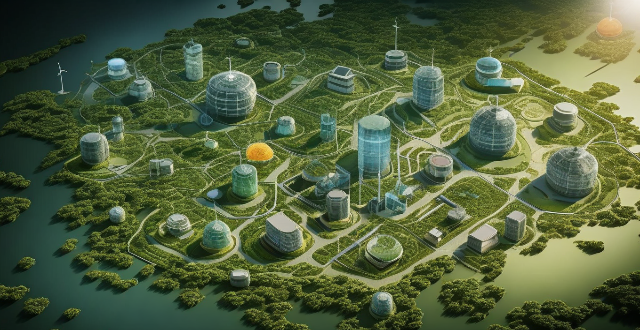The potential benefits of establishing a permanent human settlement on Mars include scientific advancements, economic opportunities, inspiration and cultural impact, and ensuring the survival of humanity. Studying Mars in greater detail can provide insights into the formation and evolution of our solar system and help us understand how life emerged and is sustained on Earth. The development of new technologies required for a Mars settlement would have applications on Earth as well, leading to advancements in technology and engineering. Resource extraction and utilization, as well as commercialization of space travel, could create new economic opportunities. A diverse community on Mars could promote cultural exchange and understanding among different nations and backgrounds, while also inspiring future generations to pursue careers in STEM fields. Finally, having a self-sustaining colony on Mars could ensure the survival of humanity in case of a catastrophic event on Earth.

Potential Benefits of Establishing a Permanent Human Settlement on Mars
Introduction
The idea of establishing a permanent human settlement on Mars has been a subject of interest for scientists, researchers, and space enthusiasts for decades. While the challenges of such a mission are numerous and complex, the potential benefits are equally significant. In this article, we will explore some of the key advantages that could arise from creating a lasting human presence on the Red Planet.
Scientific Advancements
*Deeper Understanding of the Solar System*
- Studying Mars in greater detail can provide insights into the formation and evolution of our solar system.
- Comparative planetology between Earth and Mars can help us understand how life emerged and is sustained on our own planet.
*Advancements in Technology and Engineering*
- The development of new technologies required for a Mars settlement would have applications on Earth as well.
- Innovations in life support systems, propulsion, and materials science could lead to improvements in multiple industries.
Economic Opportunities
*Resource Extraction and Utilization*
- Mars is rich in resources like water ice, which can be converted into rocket fuel and oxygen for life support.
- Mining rare metals and minerals on Mars could create new economic opportunities.
*Commercialization of Space Travel*
- A permanent settlement could pave the way for regular travel between Earth and Mars, leading to new markets and businesses.
- Tourism to Mars might become a reality, offering unique experiences to space tourists.
Inspiration and Cultural Impact
*Motivation for Future Generations*
- The prospect of living on another planet can inspire young people to pursue careers in science, technology, engineering, and mathematics (STEM).
- Stories and achievements related to Mars exploration can capture the public's imagination and foster a sense of global unity.
*Cultural Exchange and Diversity*
- A diverse community on Mars could promote cultural exchange and understanding among different nations and backgrounds.
- The creation of a new society on another planet offers an opportunity to rethink social structures and build a more equitable future.
Survival of Humanity
*Backup Plan for Human Survival*
- In case of a catastrophic event on Earth, having a self-sustaining colony on Mars could ensure the survival of humanity.
- It provides an insurance policy against global extinction events like asteroid impacts or nuclear warfare.
Conclusion
While the establishment of a permanent human settlement on Mars comes with its own set of challenges, ranging from technological hurdles to ethical considerations, the potential benefits are vast and far-reaching. From advancing scientific knowledge to creating new economic opportunities and inspiring future generations, a Mars settlement represents an ambitious goal that could fundamentally change our relationship with the cosmos. As we continue to explore this possibility, it is essential to approach such endeavors with caution, responsibility, and a commitment to ensuring the well-being of both the inhabitants of Mars and those left behind on Earth.